One of the longest-running youth exchange programmes between Brunei Darussalam and Japan, the International Summer Medical School (ISMS) programme of Pengiran Anak Puteri Rashidah Sa’adatul Bolkiah Institute of Health Sciences (PAPRSB IHS), Universiti Brunei Darussalam (UBD) and the Faculty of Medicine at Kagawa University Japan, enters its 20th year of education and cultural exchanges.
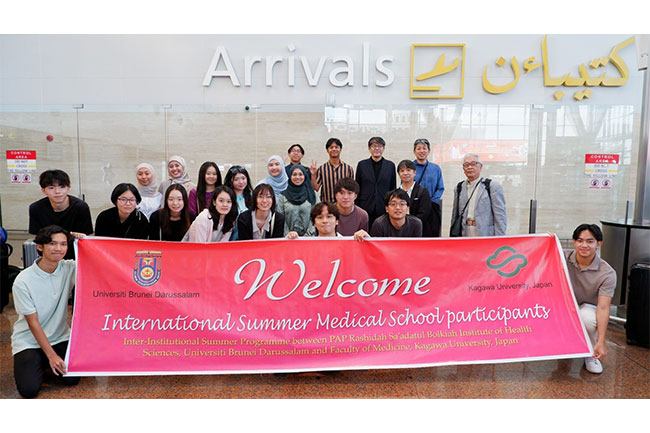
The Ambassador of Japan to Brunei Darussalam His Excellency Toru Maeda said at the opening ceremony of the programme on 23rd July 2024, “The Government of Japan has long promoted youth exchanges between Brunei and Japan through various initiatives such as JENESYS and the Japanese Government Scholarship programme.”
“I hope the ISMS provides a golden opportunity to further develop mutual understanding between Japanese and Bruneian youth,” His Excellency added, hoping that the programme provides the opportunity to develop mutual understanding between Bruneian and Japanese youth through developing practical skills in Medicine, international communication skills and a global mindset.
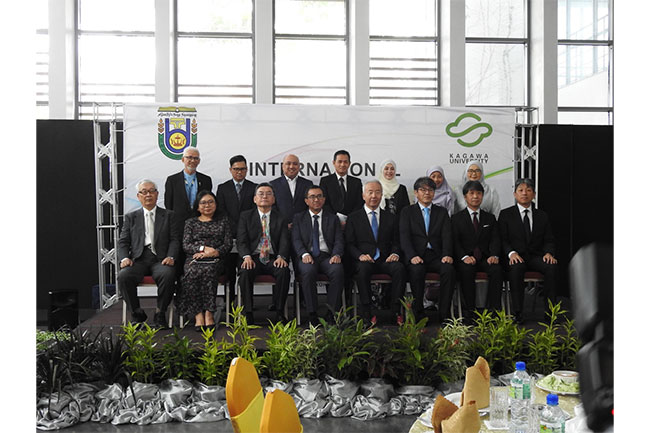
The 14th ISMS continued the programme after a five-year hiatus due to the COVID-19 pandemic, and is a testament to the shared commitment to advancing medical education, research and practice. The partnership has been able to inculcate a unique and enriching environment that brings together students and faculty members from diverse backgrounds to engage in meaningful academic and cultural exchanges. As a platform for knowledge sharing, professional development and the building of lasting relationships across borders, the experiences gained contribute to the participants’ personal and professional growth.
This year, the delegation from Kagawa University included four principal officers: Professor Kenji Wada, Vice President; Professor Kenji Kanenishi, Vice-Dean of the Faculty of Medicine and Chairperson of the International Contribution & Exchange of the Faculty of Medicine; Professor Saneyuki Yasuda, Member of the International Contribution & Exchange of the Faculty of Medicine; and Professor Massahiro Uehara, Executive Advisor to the Dean of the Faculty of Medicine. The seven medical students from the Faculty of Medicine, Kagawa University were Yohei Ogita, Misaki Sugimoto, Tomoko Kaji, Hinako Seki, Sei Mitani, Naoki Mori, and Sakurako Miyatake.
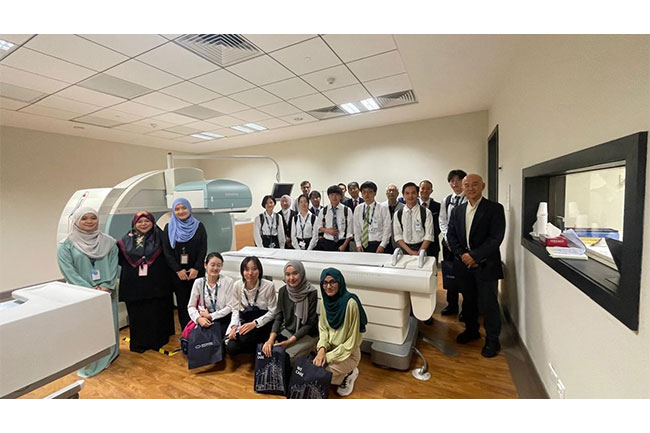
Participants attended Personal and Professional Development joint sessions with PAPRSB IHS Year Two Medicine and Dentistry students, which reviewed the concepts and principles of basic and Islamic laws. The sessions also discussed principles and theories of medical and biomedical ethics. The Communication and Clinical Skills sessions allowed students to practice interaction and communication skills with patients and other various clinical skills.
In addition, the students learned about some of the research projects conducted at PAPRSB IHS, with a particular highlight on the ongoing genomics research supported by the Biomedical Genomics Core (BGC) Laboratory.
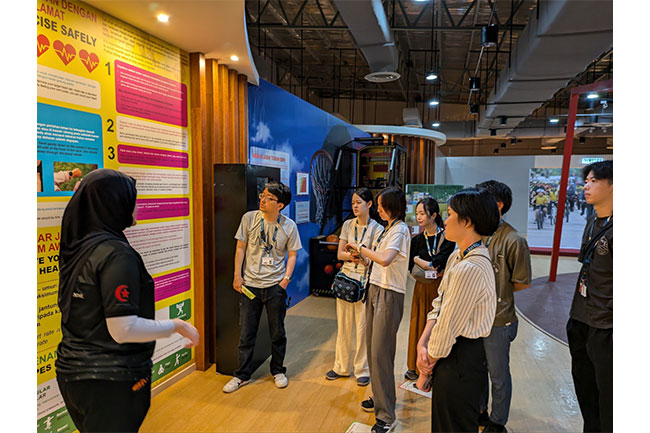
As part of the academic programme, the Problem-Based Learning (PBL) sessions fostered the participants’ systematic inquiry and collaborative problem-solving skills, leadership, teamwork, and effective presentation skills. They also benefit from other teaching sessions including clinical skills sessions and practical demonstrations, which were all tailored to meet their learning objectives. A key objective of the ISMS programme is to enhance the participants’ English proficiency and communication skills in professional and social contexts. Throughout, participants were encouraged to use English actively, including during PBL sessions and social events. They also got to showcase their proficiency by sharing their social and cultural experiences in an oral presentation.
The coordinators of the 14th ISMS Programme, Dr Liyana Ahmad and Dr Hanisah Sharif, expressed hope that the participants would seize the invaluable opportunity to gain knowledge and create lasting memories.
Participating Japanese youth experienced Brunei’s nature through social outdoor activities and recreational visits to popular landmarks in Brunei, and learned Bruneian culture by participating in homestay, traditional games and music as well as interactive cultural exchange.
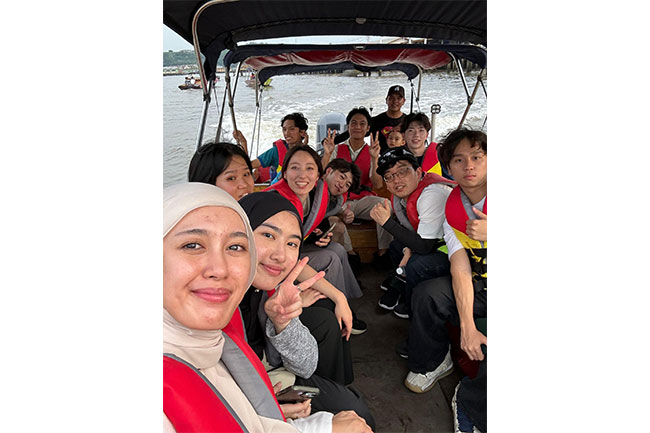
Food is an undeniably important aspect when it comes to understanding and appreciating local culture. As part of the participants’ social visit to Kampong Ayer, the students were introduced to the local delicacy, ambuyat. Sakurako Miyatake commented, “This is my very first time eating the interesting Ambuyat dish, as the dish is not available in Japan.”
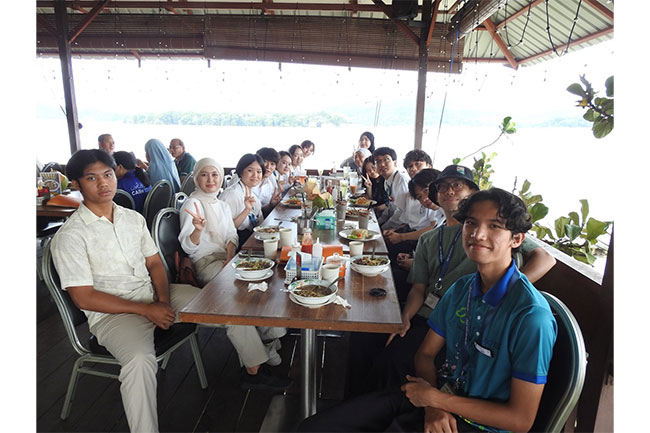
“I was super surprised by the sticky and chewy texture. It reminds me of chewing gum. The taste of the dish is very uniquely delicious. Moreover, the sauce with a hint of durian flavor was my favorite. I really loved it, and so far it is my favourite Bruneian dish.”
Exposing the Japanese students to Brunei Darussalam’s rich cultural heritage and fostering appreciation for it is a major facet of cultural exchange. Naoki Mori, on his visit to the Royal Regalia Building said, “Royal regalia was fascinating. There I got to learn about the history of Brunei and see beautiful relics and ornaments of the royal family. What I found the most impressive was that the regalia used for the coronation ceremony was made out of real gold! I thoroughly enjoyed the experience alongside my UBD friends.”
Muhammad Afif ‘Hafiyuddien @ Izzul Firdaus Haji Zulkiflee, a Bachelor of Health Science (BHSc) Medicine student from Cohort 19 at PAPRSB IHS remarked, “A visit to the Brunei Arts & Handicraft Centre offered the Kagawa students a unique opportunity to immerse themselves in Bruneian culture and heritage. We learned that the centre primarily preserves traditional handicrafts.”
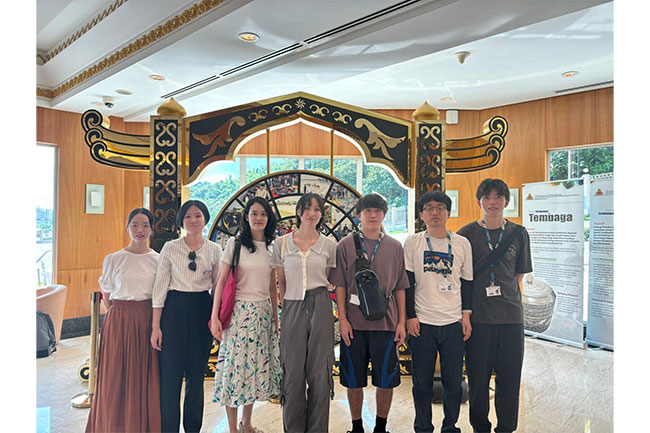
“Interestingly, visitors can view and purchase a variety of items, including hand-woven baskets, brassware, silverware, wood carvings, brocades, and asymmetrical daggers,” He added. “This experience allows the students to step back from the modern age and appreciate the fine arts that have been integral to Brunei’s cultural heritage for centuries.”
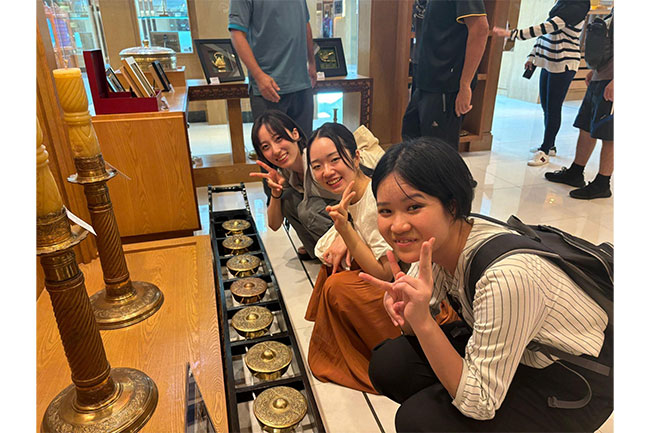
On their day out in Kampong Ayer, the participants observed the mangrove forests along the Brunei River, keeping an eye out for the elusive Proboscis monkey. The group eventually visited the Energy Hub Dermaga Diraja and took a trip to explore Seria on separate days to learn more about Brunei Darussalam’s history with oil and gas exploration.
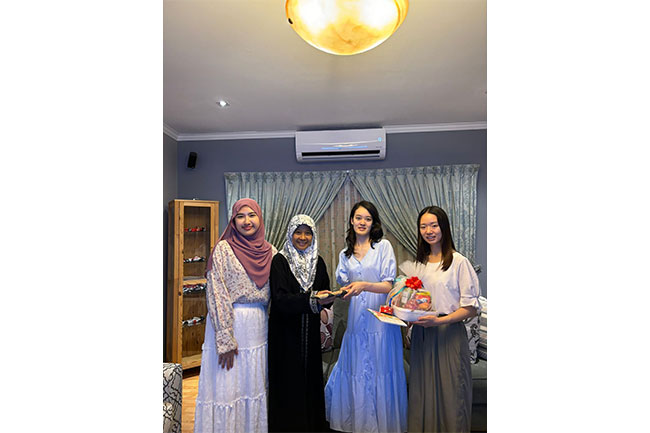
The programme also provided the Japanese youth an opportunity to stay with local Bruneian families, immersing them into Bruneian daily life. They engaged in various aspects of local living, including house customs and even enjoyed home-cooked meals. The experience was designed to enhance their global perspective through direct, hands-on experience. “We talked a lot, introducing each other to our cultures and habits that were observed at home,” Kon Chai Eshyn, one of the homestay buddies, said on hosting two Japanese participants. “We stayed up quite late as there was so much to talk about – but we became so much closer! It was certainly enjoyable and I wish I could do it again!”
While the participants learned a lot from the academic sessions on campus, they also visited four different clinics in Brunei Darussalam throughout the programme to better understand the nation’s capabilities and healthcare policies. They went to the Women and Children’s Centre at the Raja Isteri Pengiran Anak Saleha (RIPAS) Hospital, the Health Promotion Centre (HPC) under the Ministry of Health, The Brunei Cancer Centre (TBCC), and Gleneagles Jerudong Park Medical Centre (JPMC).
The ISMS programme is aligned with United Nations (UN) Sustainable Development Goals (SDGs), which are to ensure inclusive and equitable quality education and promote lifelong learning opportunities for all, and strengthen the means of implementation and revitalise the Global Partnership for Sustainable Development.


